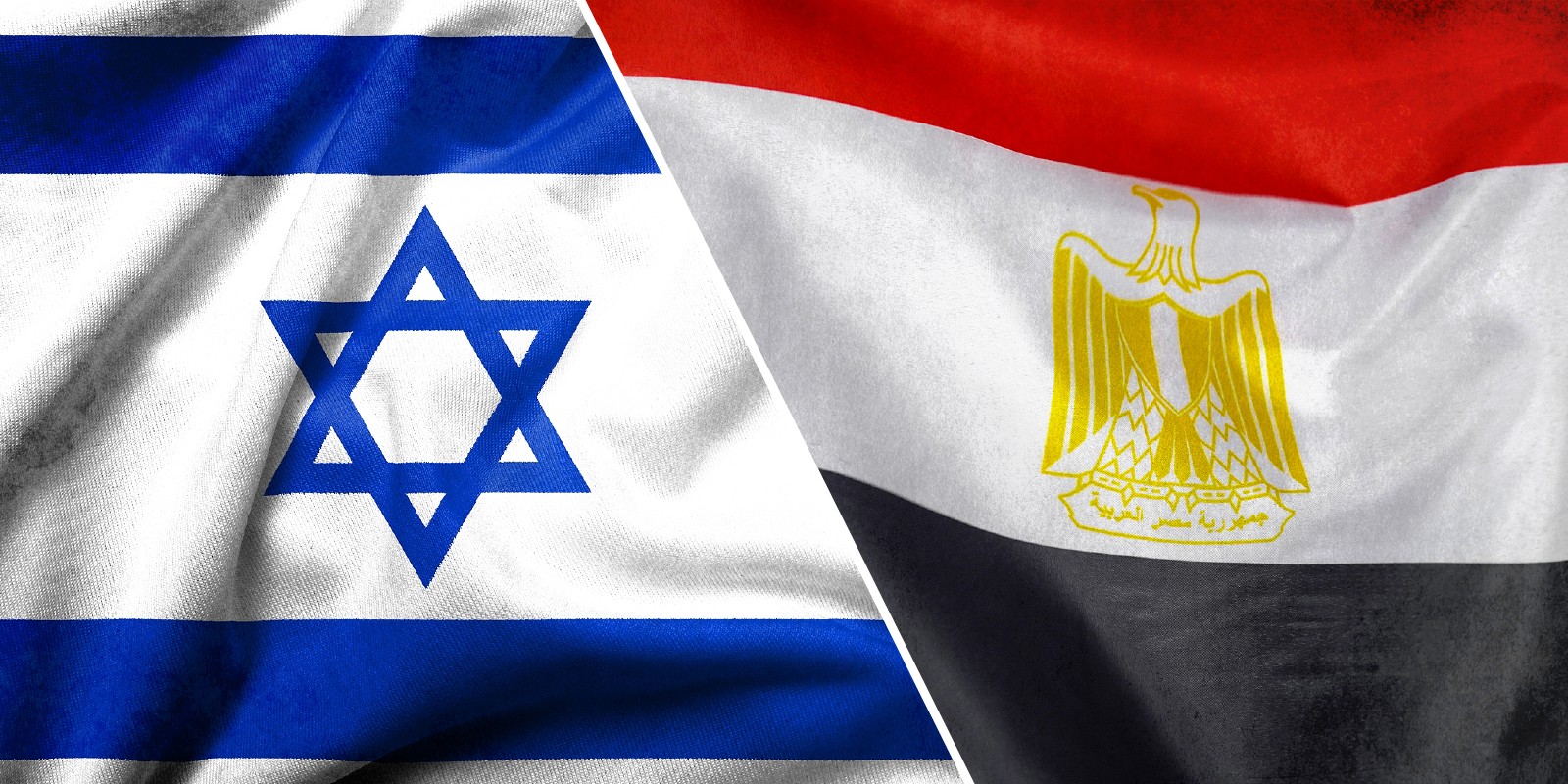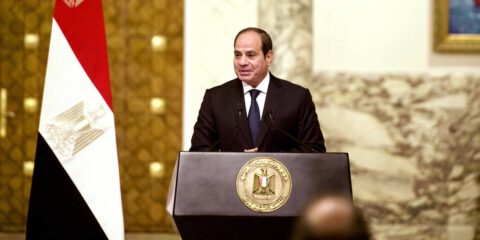If three core principles are maintained.
For the first time in 13 years, an Israeli foreign minister (Gabi Ashkenazi, a former Chief of Staff of the IDF) has visited Egypt for talks with his Egyptian counterpart (Sameh Shukri). At the same time, the head of Egyptian Intelligence, Abbas Kamel, landed in Israel to discuss the situation regarding Gaza with Prime Minister Netanyahu and Defense Minister Gantz. Both visits are parts of a bid by President ‘Abd al-Fattah al-Sisi to take the lead in stabilizing the ceasefire between Hamas and Israel and managing the next steps in the broader Israeli-Palestinian context.
Egypt has already benefitted from this. The initiative broke the ice between Sisi and the Biden Administration. Israel, stands to gain, as well. Unlike their predecessors, Sisi and Shukri have welcomed the Abraham Accords. Israel and Egypt have common interests in the eastern Mediterranean. And the Egyptians, for their own reasons, do not trust Hamas.
Still, Israel is entitled to insist that as mediators, the Egyptians should keep Jerusalem off the table. It would be dangerous for many in the region were Hamas to gain a strategic foothold there. Israel also should insist on a swift release of its citizens held by Hamas and the return of the bodies of dead soldiers held since 2014. Additionally, it would be useful for the Egyptian government to curb the coarse anti-Israeli and often antisemitic discourse in its state-owned media and the Egyptian public domain, which acts to constrain Cairo’s options.
Comparison with 2014
Back during operation “Protective Edge,” in the summer of 2014, it took seven long and difficult weeks for the Egyptians to bring about understandings which made it possible to establish a ceasefire between Israel and the “armed factions” in Gaza, namely Hamas and the Palestinian Islamic Jihad. This time, in the clash that Israel calls “Guardian of the Walls” and Hamas dubbed “the Sword of al-Quds [Jerusalem],” it took less than two weeks.
Then as now, Israel saw Egypt as the one and only regional player qualified to manage the endgame. Qatar may act as the “Chief Financial Officer” for Gaza, but the “CEO” authority and geo-political control must remain in Cairo. Egypt shares many of Israel’s concerns about destabilizing and subversive forces in the region.
Indeed, in 2014 Israel felt obliged to bluntly dissuade US Secretary of State Kerry from bringing Turkey and Qatar into the fray, which would have undermined Egypt’s position. (Tukey and Qatar are active sponsors of Moslem Brotherhood elements across the region, including Hamas.)
However, at the time, the depth of hatred between Hamas and the Sisi regime posed a serious and delaying hindrance. In July 2013, it was Sisi who overthrew of the Moslem Brotherhood president, Muhammad Mursi. In August 2013, violent action was taken against the Brotherhood demonstrators at the Rabi’ah al-‘Adawiyyah Square in Cairo. Real blood, not just bad blood, ran between Egypt and Hamas. It was only when the IDF intensified its pressure that the armed factions finally agreed to overcome their bitterness with Egypt and make their way to Cairo.
Things have changed, at least at the level of appearances. The Egyptians still detest Hamas and conduct all business with the “armed factions of the resistance” via intelligence channels that do not confer on Hamas and Islamic Jihad any diplomatic legitimacy. Still, Egypt has come to accept the present government in Gaza as a fait accompli. For the time being, at least, there is no Egyptian expectation of an internal uprising against the Hamas regime, based on the model of the “Tamarrud” movement in Egypt in June 2013. Hamas leadership, too, has come to understand that Sisi holds the keys to their future.
Sisi moved quickly to assert this centrality in the recent crisis, to ensure that Erdogan’s Turkey does not steal his thunder, among other reasons. Erdogan has called Sisi a usurper, and consequently Sisi looks upon today’s Turkey as an enemy, despite some recent signs of reconciliation. Egypt went so far as to offer, up front, half a billion dollars for reconstruction in Gaza (while seeking mechanisms that would avoid Hamas’s control). Whether these funds will be disbursed, and how the impoverished nation of Egypt can afford this, remains to be seen.
The American Angle
After “Operation Pillar of Defense” in November 2012, it was Egypt’s role in achieving a ceasefire that brought then-president Mursi into Hillary Clinton’s good graces. This time, the crisis in Gaza led to the first ever phone conversation between President Joe Biden and his Egyptian colleague Sisi, soon followed by second call. Eager to find a way forward without empowering Hamas, Washington latched onto the Egyptian role and lent it authority and support.
Voices in Congress and in American (and European) publics are still being heard accusing Sisi of human right violations and demanding an end to US arms supplies to Egypt. But for Israel, unhappy as it may be with some Egyptian practices, American aid to Egypt remains the key to stability of the 1979 Israel-Egypt Peace Agreement. Thus, the signs of a US-Egypt rapprochement (after a long period in which Biden did not see fit to call Sisi) are welcomed in Jerusalem.
Israel’s Expectations
In past Israel has shown a considerable degree of flexibility in matters related to reconstruction for Gaza – working with Egypt, the UN Special Representative, and with Qatar. This might again be the case now.
Still, on three key points Israel can and should use its leverage to ensure that its core principles are not ignored.
1. No clause or even implied language in any exchange of positions should provide Hamas with a foothold in the affairs of Jerusalem – which was the reason Hamas went to war in the first place. There would be a grave danger to Israel, Egypt and many others in the region were Hamas able to claim for itself “guardianship of al-Aqsa.”
2. There must be a swift solution to the enduring agony caused Hamas’ retention of the bodies of two Israeli soldiers, Lt. Hadar Goldin and Sgt. Oron Shaul who were killed in 2014; and the holding by Hamas as hostage of a mentally challenged man of Jewish Ethiopian origin, Avraham (“Avera”) Mengistu; and Hamas’s imprisonment of one (and perhaps up to three) young Arab Israelis, who crossed the border of their own volition. Israeli public anger at Jerusalem’s failure to secure their return is growing and will constrain approval by Israel of any large-scale initiative on Gaza reconstruction. 3. At least while seeking to mediate between Israel and Hamas, it would be appropriate for Cairo to tone down the shrill level of Egyptian media and public attacks on Israel, Zionism, and Jews. While the situation clearly has improved since the days of Hosni Mubarak (whose policy was to befriend key Israelis but create an atmosphere of hate towards Israel as a state) much remains to be done. The recent sharp rebuke issued by the US State Department to Erdogan for his continuing antisemitic rhetoric should serve as a warning to Sisi too.
JISS Policy Papers are published through the generosity of the Greg Rosshandler Family.
photo: Big Stock







 - בניית אתרים
- בניית אתרים